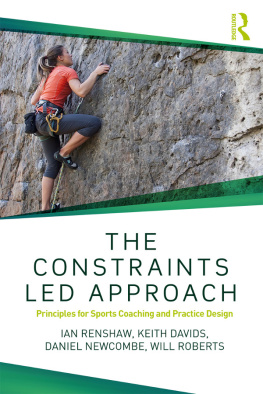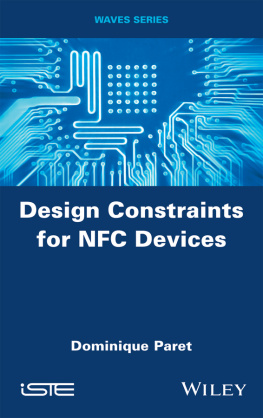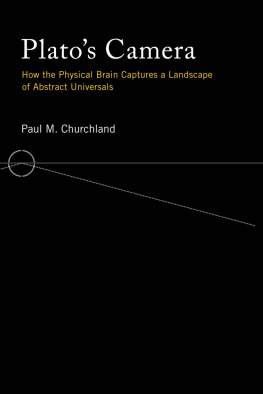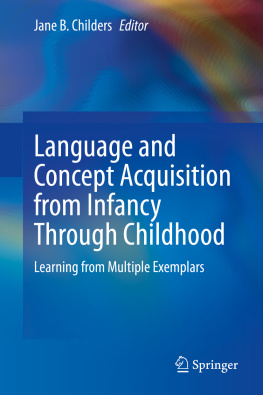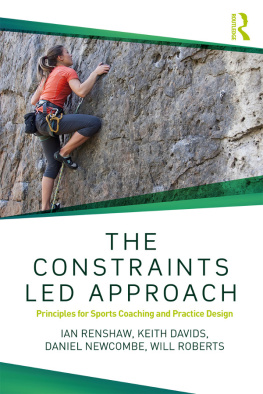
The Epigenesis of Mind: Essays on Biology and Cognition
The Epigenesis of Mind: Essays on Biology and Cognition
Edited by
Susan Carey
The Massachusetts Institute of Technology
Rochel Gelman
University of California, Los Angeles

First Published 1991 by
Lawrence Erlbaum Associates, Inc.
Published 2014 by Psychology Press
711 Third Avenue, New York, NY 10017
and by Psychology Press
27 Church Road, Hove, East Sussex, BN3 2FA
Psychology Press is an imprint of the Taylor & Francis Group, an informa business
Copyright 1991 by Lawrence Erlbaum Associates, Inc.
All rights reserved. No part of this book may be reprinted or reproduced or utilised in any form or by any electronic, mechanical, or other means, now known or hereafter invented, including photocopying and recording, or in any information storage or retrieval system, without permission in writing from the publishers.
Trademark notice: Product or corporate names may be trademarks or registered trademarks, and are used only for identification and explanation without intent to infringe.
Library of Congress Cataloging-in-Publication Data
The Epigenesis of mind : essays on biology and cognition / edited by Susan Carey and Rochel Gelman.
p. cm. (The Jean Piaget Symposium series)
Chiefly papers presented at the symposium, Biology and knowledge: structural constraints on development, held in 1988, sponsored by the Jean Piaget Society.
Includes bibliographical references and index.
1. CognitionCongresses. 2. Learning, Psychology ofCongresses. 3. CognitionPhysiological aspectsCongresses. 4. Learning, Psychology ofPhysiological aspectsCongresses. 5. Knowledge, Theory ofCongresses. 6. PsychobiologyCongresses. I. Carey, Susan. II. Gelman, Rochel. III. Jean Piaget Society. IV. Series.
BF311.E585 1991
153dc20
90-49812
CIP
ISBN 13: 978-0-805-80438-6 (hbk)
Publishers Note
The publisher has gone to great lengths to ensure the quality of this reprint but points out that some imperfections in the original may be apparent.
For Randy and Ned
Contents
C.R. Gallistel, Ann L. Brown, Susan Carey, Rochel Gelman, and Frank C. Keil
Peter Marler
Adele Diamond
Elissa L. Newport
Elizabeth S. Spelke
Annette Karmiloff-Smith
Kurt W. Fischer and Thomas Bidell
Frank C. Keil
Susan Carey
Rochel Gelman
Piaget was always concerned with how best to characterize the biological contributions to cognitive development. This book grew out of the 1988 Symposium of the Jean Piaget Society, with the theme Biology and Knowledge: Structural Constraints on Development. Our invitations to Plenary speakers included a common section on the issues we wanted to address as well as some specific suggestions as to how each speakers work was related to these. The speakers attention to the call to the meeting resulted in a connected series of discussions throughout the Symposium as well as a series of interrelated chapters. The common text in our invitation letters to all plenary speakers was as follows:
As we conceive it, the theme has three concepts: biology, structural, and constraint. Biology enters into the discussion in three ways: the specification of the innate initial state, the consideration of the influence of maturational factors on development, and a consideration of the relation between evolution and cognition. Constraint has two senses, a sense in which the which constraints limit the learner, making certain information difficult, even impossible to acquire, and a sense in which constraints potentiate learning by limiting hypotheses the learner entertains. We plan for the program to explore both facets of constraint. Finally, structural refers to the organization of the initial state. At the end of his career, in collaboration with Garcia, Piaget returned to a serious exploration of the parallels between the genesis of knowledge in the history of science and the individual. This work coincides with a resurgence of interest in intuitive theories on the part of cognitive scientists and science educators. Intuitive theories, alternative conceptual frameworks, provide a way of thinking about constraints in both sensesthe child, like the scientist, is limited by his or her intuitive theories, without which learning would be impossible. This too will be a focus of several of the plenary sessions. (From our invitation letter of July, 22, 1987)
All save one of the following chapters were presented as plenary talks or discussions at the meeting. Randy Gallistel agreed to rewrite the document that Brown, Carey, Gelman, and Keil put together in 19841985 at the Center for Advanced Study in the Behavioral Sciences. There are a variety of emergent themes, ones that weave in and out of different parts of the following chapters, that we wish to draw to the readers attention. These are:
1. To postulate innate knowledge is not to deny that humans can acquire new concepts.
Almost every author touches on this point to a greater or lesser degree, and therefore rejects Fodors claim that all is known, in some sense, at birth.
2. To grant innate structures and capacities that are richer than reflexes and the ability to form associations, is not to deny that experience is a crucial, central, and necessary ingredient in the tale of how learning and development proceed. Quite the contrary.
This theme is related to Theme 1 and it is especially noteworthy that none of the chapters makes the error of denying the crucial role of experience.
3. Innate and acquired structural determinants do important work.
They increase the likelihood that novices will attend to relevant inputs.
They provide a way to make coherent incoming data before the domain is mastered.
They contribute the constraints that enable competent plans of action and thereby provide a source of self-generated feedback, practice, or alternative solution paths.
They enable induction and hence learning.
4. It is unlikely that there is only one learning mechanism, even if one prefers to work with general as opposed to domain-specific mechanisms.
5. The problems of induction with respect to concept acquisition are even harder than we thought.
It is not enough to postulate structural guidelines that help novices attend to relevant inputs; we need better and detailed accounts of acquisition mechanisms, ones at least at the level of detail Marler and his colleagues are developing.
6. Structural constraints on cognitive development and learning come in many shapes and forms and involve appeal to more than one level of analysis.
For us, this is the most important theme of the book. Different levels of analysis are suited to different explanatory tasks. Biological concepts are central for accounts of the role of maturation, the concepts used by historians of science help us analyze intuitive theories, and so on. We believe that both biological and intellectual structure are fundamental contributors to the epigenesis of the mind.
Acknowledgments
This book has a complex epigenesis, starting with a decision by Elizabeth Spelke and Rochel Gelman to convene a workshop to discuss what it could mean to say there are structural constraints on cognitive development. In June of 1984 (thanks to support from the Alfred P. Sloan Foundation and the Program in Cognitive Science at the University of Pennsylvania) about 20 scholars with different theoretical persuasions and areas of expertise, including Computer Science, Biology, Ethology, Philosophy and Psychology, gathered at Penn to talk about the idea that knowledge can be innate and yet develop. These discussions provided the background material for the working group on Structural Constraints on Cognitive Development that spent the next year at the Center for Advanced Study in the Behavioral Sciences in Stanford, California. Ann Brown, Frank Keil, and the two of us met every Monday morning to study relevant literaturesincluding ones on ethology and animal psychologyand evolve our positions. Randy Gallistel, also at the Center, served as a sounding board for our forays into psychobiological areas. We also held a seminar for other interested Center Fellows and scholars at nearby institutions. We thank Eve Clark, John Flavell, and Ellen Markman (at Stanford), Kurt van Lehn (at Xerox Parc), Mary Kistler (at Ames-NASA), and Tom Bever, Jacqueline Goodnow, Arthur Parmelee, and Arnold Sameroff (all Center Fellows) for their contributions to our exploration of the role of domain-specific and domain-general constraints on cognitive development.
Next page

